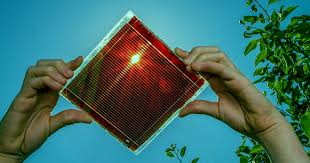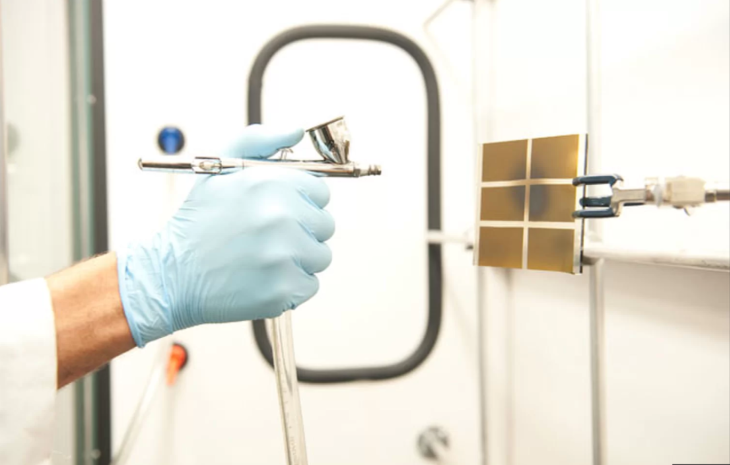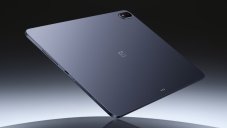This Magic Liquid Will Turn Any Surface Into Spray-On Solar Cells
Aadhya Khatri - Dec 18, 2019

These panels are able to generate energy from sunlight just like any regular silicon-based solar cells we are using
- India's Kochi Airport Now Has A New Floating Solar Plants
- Startup Turns Windows Into Transparent Organic Solar Panels That Can Generating Electricity
- These Solar Panels Automatically Retract When There's No Sunlight
According to scientists from the University of Central Florida, their new AI is developing perovskite, a liquid that can someday become spray-on solar panels, which they call PSCs (short for perovskite solar cells).
These panels are able to generate energy from sunlight just like any regular solar cells we are using. This idea has been around for over a decade but until now, scientists have not found a recipe that is both cost and energy-efficient.

Perovskite is processed in both liquid and solid states, ensuring the flexibility of the material. They can be painted on bridges, skyscrapers, and houses to help generate sustainable energy and send it to the power grid.
For now, silicon is still the go-to material for making solar cells because it is effective. However, it is not without limitations. The same is true for the futuristic perovskite. It is hard to make it into something stable and usable for practical application.
What the scientists aim at is a material that has all of the needed qualities, low production cost, stability, and flexibility. This is where AI kicks in. The system is fed with publications on perovskite which have been peer-reviewed, giving it the ability to predict which recipe is the best.
What the team hopes for is that the AI can help to make a futuristic material that is both budget-friendly and efficient.
However, the research is still at the infant stage of development and we may have to wait for a few years to see how it goes.
According to Jayan Thomas, the lead author of this research, their works prove that AI can be handy in the process of creating perovskite, as well as find out the physics to develop efficient PSCs.
Featured Stories

Gadgets - Jul 21, 2025
COLORFUL Launches iGame Shadow II DDR5 Memory for AMD Ryzen 9000 Series

Gadgets - Jun 23, 2025
COLORFUL SMART 900 AI Mini PC: Compact Power for Content Creation

Review - Jun 18, 2025
Nintendo Switch 2 Review: A Triumphant Evolution Worth the Wait

Gadgets - Jun 18, 2025
Starlink: Why It’s a Big Deal for U.S. Internet in 2025

Gadgets - Jun 17, 2025
How Custom PC Setups Support India's Esports Athletes in Global Competition

Gadgets - Jun 12, 2025
Lava Prowatch Xtreme Launches with Google Fit Integration

Gadgets - Jun 07, 2025
Fujifilm Instax Mini 41 Launches in India: Stylish Instant Camera Now Available...

Mobile - Jun 07, 2025
Realme C73 5G Launches in India: Budget 5G Phone Starts at ₹10,499

Gadgets - Jun 07, 2025
OnePlus 13s Makes Indian Debut: Compact Flagship Brings Premium Features at...

Gadgets - Jun 07, 2025
OnePlus Pad 3 Debuts with Snapdragon 8 Elite Chip, India Launch Confirmed
Read more

ICT News- Feb 19, 2026
Escalating Costs for NVIDIA RTX 50 Series GPUs: RTX 5090 Tops $5,000, RTX 5060 Ti Closes in on RTX 5070 Pricing
As the RTX 50 series continues to push boundaries in gaming and AI, these price trends raise questions about accessibility for average gamers.

ICT News- Feb 21, 2026
AI Coding Agent Causes Major AWS Outage at Amazon
In a striking example of the risks associated with deploying advanced AI in critical systems, Amazon Web Services (AWS) recently faced multiple outages attributed to its own AI coding assistants.

ICT News- Feb 20, 2026
Tech Leaders Question AI Agents' Value: Human Labor Remains More Affordable
In a recent episode of the All-In podcast, prominent tech investors and entrepreneurs expressed skepticism about the immediate practicality of deploying AI agents in business operations.
Comments
Sort by Newest | Popular